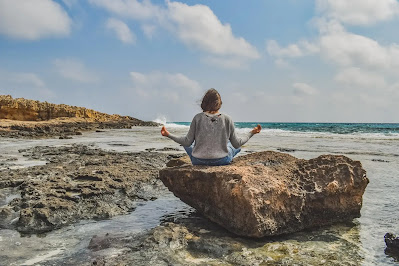What is heat stroke?
High temperature and humidity work together to cause evil.
Our body generates a lot of heat during metabolism, and this heat must be emitted through different channels (such as perspiration) in order to maintain body temperature in an appropriate range.
Under normal circumstances, the hypothalamic body temperature regulation center can balance the body's heat production and heat dissipation base energy, but when the surrounding environment temperature rises to a certain level, and the humidity is high and the ventilation is poor, the body evaporates The heat dissipation process will be blocked, and a large amount of heat energy will be accumulated in the body, and heatstroke may occur at this time.
Sweating profusely, like heat stroke?
When we perform activities that require a lot of physical exertion in a stuffy environment, there is the possibility of heatstroke at any time. Especially when working or exercising under the scorching sun or in a high-temperature environment, the body's ability to regulate body temperature cannot be adapted, and the heat generated in the body cannot be properly radiated outwards. The accumulation of high heat in the body will cause heatstroke. The initial symptoms include headache, dizziness, palpitations, nausea, etc., and then stop sweating, and body temperature rises. If not rescued in time, it can lead to coma and death.
People who are frail and obese should pay more attention
to external factors such as extreme heat, humidity, and poorly ventilated environments. Physiological factors also affect the possibility of heatstroke; therefore, weaker physiques, obesity, patients with chronic diseases, children, the elderly, pregnant women, etc. Heatstroke is more likely to occur, and hunger, lack of sleep, over-fatigue, and taking certain drugs can also induce heatstroke.
However, excessive physical exertion at high temperatures is the main cause of heatstroke. This is why some people with good physical fitness (such as police officers or firefighters who practice physical fitness) will also consume physical strength such as marching or running under the scorching sun. When exercising, the cause of heatstroke will not be supported Prevent "heatstroke" in the first place
The best way to prevent heatstroke is to strengthen protection, avoid direct sunlight, and reduce the time and amount of exercise in the hot sun or high-temperature environment. Replenish water at any time and drink more heatstroke prevention and cooling beverages on weekdays to reduce the chance of heatstroke.
Ten Notes for Heatstroke Prevention
1. Stay in a cool and ventilated place, and use electric fans or air conditioning systems to avoid excessive indoor temperature.
2. Pay attention to the weather conditions before going out to bring appropriate equipment.
3. If you want to go out for activities, do not choose the time when the sun is the strongest from 11 am to 2 pm. It is better to start exercising before 8 am or after 6 pm.
4. Avoid strenuous activities in hot weather. If unavoidable, wear thin, light-colored, loose, and airy clothing. When you are outdoors, you should wear a sombrero to avoid exposure to the sun.
5. Always prepare cool drinks during outdoor activities. In addition to boiling water, fruit juice, light saltwater, and sports drinks, you can also use boiled mung bean water instead of boiled water for daily drinking, or drink more lemonade or sour plum tea (sour plum heated water and rock sugar for cooling) Drinks that can quench thirst and increase saliva secretion can all reduce heat.
6. Avoid drinking caffeine, alcohol, too sweet or too cold beverages, because these types of beverages may cause stomach cramps. The daily diet should be as light as possible, and it is not advisable to eat too many fried foods that are greasy or too strong in taste, otherwise, it will increase the burden on the intestines and stomach.
7. When you are hungry, sleep-deprived, or sick, avoid activities in the heat or the sun.
8. Certain medicines, such as cold and flu medicines, may affect the body’s sweating function, so special attention should be paid to heatstroke prevention measures during the medicine.
9. Do not stay in a car that is parked and sealed, otherwise, you may suffer from hypoxia or even suffocation.
10. When swimming in outdoor pools or beaches, or playing outdoors, you should reapply sun lotion with SPF 15 or above






Comments
Post a Comment
Please do not enter any spam Link in the comment box.